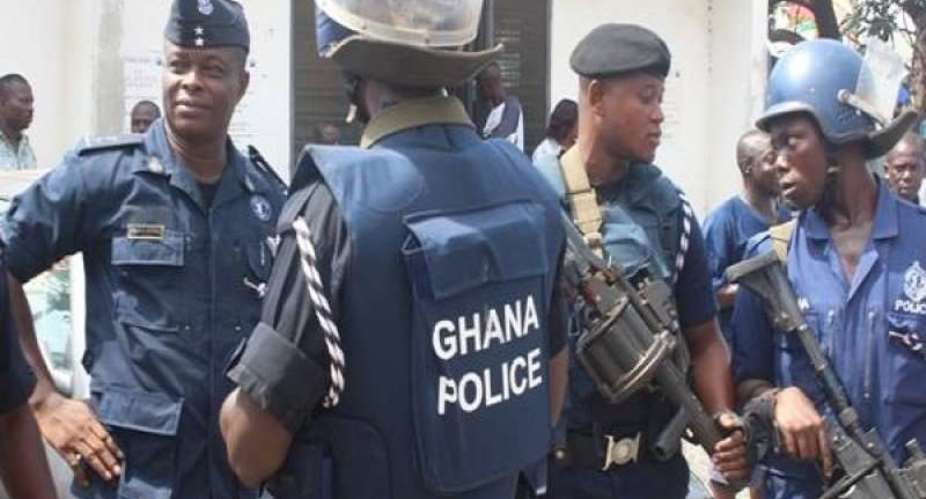All organizations be they business, educational or government are basically social systems. People run these organizations. The functioning of these organizations depend on how people work. Human behaviour is highly unpredictable. The human resource of every organization constitutes the entire workforce. Human Resource Management has the responsibility for identifying, selecting, inducing competent people, training, facilitating and monitoring them to perform at the highest level of efficiency and providing mechanisms to ensure that they maintain their affiliation with the organization.
So Police as an institution is not an exception. HRM is of utmost importance in a police department as it renders direct services to the society and for which it is responsible and the protection of its members. Police personnel who are, well trained, best motivated and led by competent superiors will improve the work culture of the police service.
The process of HRM consists of acquisition, development, motivation and maintenance of human resources. The final responsibility for personnel must lie with top management to whom personnel act as an advisor and its execution must run through the whole line of management if it is to be effective.
HRM is very important in the police organization because police officers deal with people of the community as a visible symbol of government. HRM in police is complex and demanding because it involves the management of policemen both on and off duty from the day they are selected to the day they retire. The police departments need to practice good human resource management policies. This will facilitate getting the right persons for the right job, enhanced motivation and morale of lower rank employee( constabulary), amicable relationship between superiors and subordinates, effective training among others.
Research indicates that police officers should be individually as well as collectively sensitized towards the issue of accountability towards citizens. Unfortunately the Police Service Act (ACT 350) has failed to introduce police accountability. However, experts feel that the police should be answerable to law and law only by setting up an Independent Police Complaint Unit to deal with violations and police brutalities. All police officers on duty must be answerable to this Independent Commission. The police administration needs leadership, assignment of responsibility and authority and a grouping of related activities in any division of work. Authority and responsibility needs to be redefined. Police appointments, transfers and promotions should be handled within the police hierarchy and not politicians.
A police service clothed with political direction can easily degenerate into unaccountable service with the potential to undermine the foundation of democracy. The coercive power of the police can easily extinguish liberty unless it is tempted by responsible political direction. At the same time, the various Directorates, Departments and Units of the police service should have the authority and resources to fulfill their responsibility. Each such Directorates, Departments and Units should have functional and professional authority commensurate with its requirements. However, such authority and autonomy should be accompanied by clearly defined formal system of accountability.
Delegation of authority is also required for improving present work culture. The process of delegation has to consider three parameters. The responsibility, authority and accountability involves:
- Assignment of duties/tasks to subordinates
- Empowering the subordinates with authority to use necessary resources and to give necessary orders.
- Making the subordinates accept limited responsibility for satisfactory performance.
Senior police officers are responsible for management of the constabulary. Management theories can provide useful sources of ideas and models for police management. Police management has to deal with all aspects of police service and the organization, like its resources, techniques, objectives and policies. Management is also responsible for motivating, directing and controlling the subordinates.
It is important for a police officer to know and follows six vital aspects of his command responsibility:
- The current performance of his men set against the overall objectives of the police
- The means which is available to improve efficiency and effectiveness after taking into consideration limitations.
- The desired level of performance for the subordinates.
- The goals and objectives which he will use to measure his command.
- Problem of personal management including problem of motivation and personal appraisal.
- Problem of resource management and time management.
Authored by :
Richmond Yao Willington
Email: [email protected]





 Meta releases new version of conversational AI across its platforms
Meta releases new version of conversational AI across its platforms
 Cape Town named Africa’s Best Airport 2024 by Skytrax
Cape Town named Africa’s Best Airport 2024 by Skytrax
 Bono East: Four injured after hearse transporting corpse crashes into a truck
Bono East: Four injured after hearse transporting corpse crashes into a truck
 ‘Be courageous, find your voice to defend our democracy’ — Sam Jonah urges journ...
‘Be courageous, find your voice to defend our democracy’ — Sam Jonah urges journ...
 Exodus of doctors, nurses and teachers have worsened because of unserious Akufo-...
Exodus of doctors, nurses and teachers have worsened because of unserious Akufo-...
 2024 election: Avoid insults, cutting down people in search of power – National ...
2024 election: Avoid insults, cutting down people in search of power – National ...
 ‘You passed through the back door but congratulations’ — Atubiga on Prof Jane Na...
‘You passed through the back door but congratulations’ — Atubiga on Prof Jane Na...
 Government’s $21.1 billion added to the stock of public debt has been spent judi...
Government’s $21.1 billion added to the stock of public debt has been spent judi...
 Akufo-Addo will soon relocate Mahama’s Ridge Hospital to Kumasi for recommission...
Akufo-Addo will soon relocate Mahama’s Ridge Hospital to Kumasi for recommission...
 We must not compromise on our defence of national interest; this is the time to ...
We must not compromise on our defence of national interest; this is the time to ...
